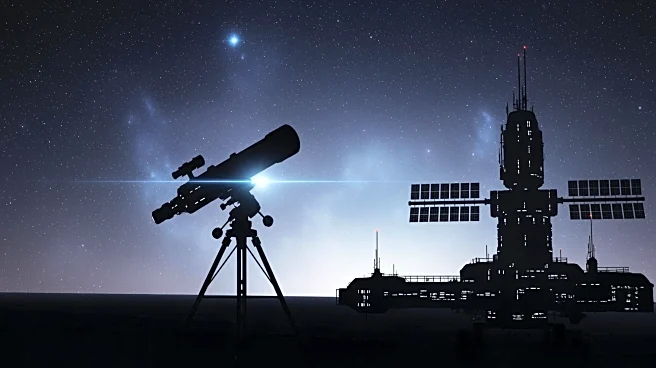What's Happening?
The International Space Station (ISS) is set to be decommissioned in 2030, marking the end of a significant era in space exploration. The ISS has been a pivotal platform for scientific research and international cooperation since its first crewed mission in 2000.
Sociologist Paola Castaño-Rodriguez highlights the ISS's role in fostering global collaboration and advancing scientific knowledge in space. Despite its high operational costs, the ISS has facilitated over 4,000 experiments, contributing to numerous scientific papers. The transition to commercial space stations is underway, with companies like Axiom Space and Blue Origin stepping in to fill the gap left by the ISS.
Why It's Important?
The decommissioning of the ISS represents a significant shift in space exploration and research. The ISS has been a cornerstone for international collaboration, bringing together astronauts and scientists from various countries. Its loss raises questions about the future of space research and the ability of commercial entities to maintain the same level of scientific output and international cooperation. The transition to commercial space stations could lead to changes in how space research is conducted, potentially affecting transparency and accessibility of scientific data. The legacy of the ISS in fostering international partnerships and advancing space science will be a critical consideration as new platforms emerge.
What's Next?
As the ISS approaches its decommissioning, the focus will shift to the development and operation of commercial space stations. These new platforms will need to address challenges such as maintaining scientific rigor, ensuring data accessibility, and fostering international collaboration. The role of private companies in space exploration will likely expand, with potential implications for how space research is funded and conducted. The transition period will be crucial in determining the future landscape of space science and international cooperation in orbit.
Beyond the Headlines
The shift from a publicly funded to a commercially driven space research model could have long-term implications for the accessibility and direction of scientific research. The ISS has been a symbol of international cooperation, and its absence may alter geopolitical dynamics in space. The ability of commercial stations to replicate the ISS's success in fostering global partnerships and advancing scientific knowledge will be closely scrutinized. The ethical and cultural dimensions of this transition will also be important, as space exploration continues to evolve in a rapidly changing global context.
















